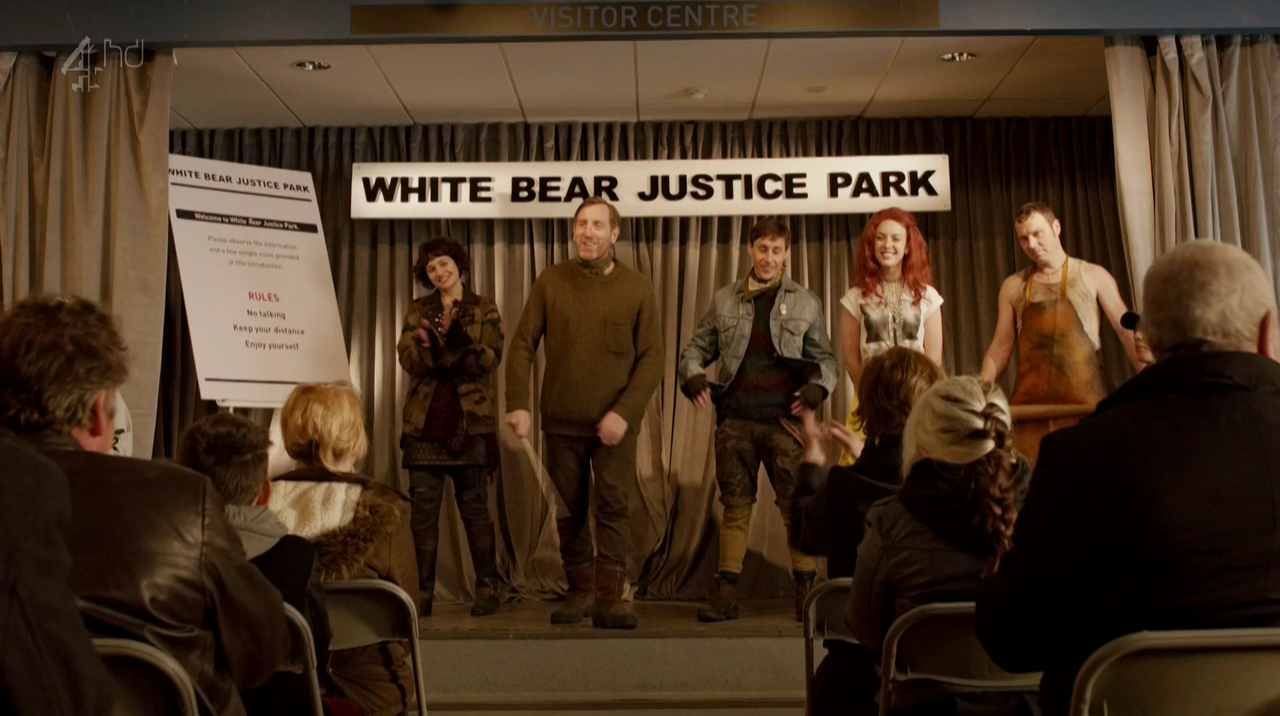
I guess everybody born in the 90’s and who know what is Netflix, knows the huge series « Black Mirror ». If you never heard about it, you are living under a rock. But if you haven’t watched it, or even if you have, here is a small approach of this series.
Black Mirror is a British science fiction television series created by Charlie Brooker in 2011, doubly nominated at the BAFTA awards (British Academy of Film and Television Arts), and winner of an Emmy Award and a Golden Rose Award. It has received critical acclaim and has seen an increase in interest internationally (particularly in the US) after being added to Netflix in 2016 and mostly for the third season produced by them.
It is centered on dark and satirical themes that examine modern society, particularly with regard to the unanticipated consequences of new technologies. The series puts us in a futur more or less close to us, and by « more or less » it’s like in ten minutes or in 10 years. Episodes are standalone works, usually set in an alternative present or the near-future. Regarding the programme’s content and structure, Brooker – the realisator — noted, « Each episode has a different cast, a different setting, even a different reality. But they are all about the way we live now; and the way we might be living in 10 minutes’ time if we’re clumsy ».
Since each episode is independent to others, so it’s totally possible to watch an episode of your choice without ever seeing the others. It’s more of a global reflexion on the modern world and prospects future than a series where you follow the same characters all along.
Black Mirror questions, more specifically, our relationship to technology. This is not a revelation, the Internet has changed our lives. The least scoop, the least information, joke, personality is found on facebook, twitter, google, tumblr, and mocked sometimes. We are all connected, but sometimes we observe drifts. It could be about things like social medias, appearance or relationships, but most of the episodes are more « dark » and deals with murder, crimes, humiliation; with a dramatic end every time.
The most seasoned spectator at the turn of events often sees nothing coming from the final twist. Shocking sometimes, often radical, but also funny and inventive, Black Mirror plays on the fears and fantasies aroused by the invasion in our dailies of all these tools supposed to facilitate our existence. Thus, this series of dystopian anticipation returns us as a distorting mirror to our own reality.
Black Mirror is pessimistic, it’s a fact. But the series does not pose technology as guilty of evil deeds, simply as a filter, a revealer of the human species – a « black mirror » so … Some episodes will not suit sensitive souls, others risk you tear away a few tears, but none will leave you indifferent, it’s guaranteed.
I really like the fact that each episode is independent and has a real message. When you’re done watching it, you’re like « what the hell just happened? » and it takes you a couple minutes to realize and understand. Sometimes it will even take you another watch to get everything.
Personally, the one that marked me the most was « White Bear », it offers us one of the most unexpected falls of season 2 : A young woman wakes up with a terrible headache without recognizing anything around her. She decides to leave the house in which she is. Her only memories are encrypted flashes, and is found watched by other residents of her neighborhood, mysteriously hypnotized and acting like human smartphone, cameras in hand; while others are more threatening and seek to kill her. We discover at the end (SPOILER ALERT) that she is the victim of a game aimed at punishing her. She is accused of kidnapping and killing a girl and filming the scene with her phone. So the game puts her in the same situation the little kidnaped girl was.
In conclusion, Black Mirror alerts on possible drifts of certain technologies and attitudes in general, it reveals in subtext a sharp criticism of Western mankind : rich and comfortable, but without ever returning to judgment or excess. Ultimately, in every episode, there is a real resonance with our present time, which encourages us to think twice.
On this note, I will let you with the trailer of « White Bear » – scary, isn’t it?

Words I have learned :
– standalone : autonome
– drifts : dérives
– dystopian : dystopique
– deeds : actes / actions